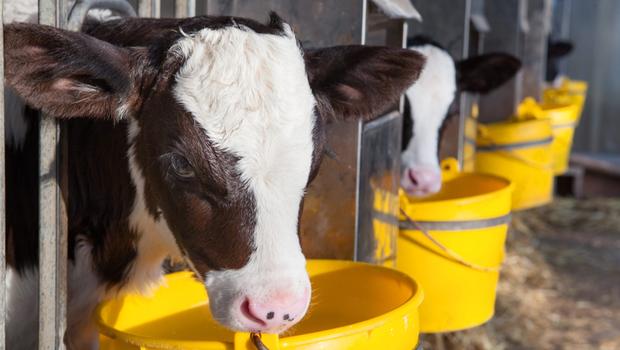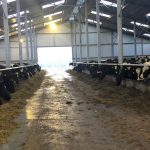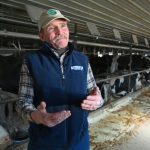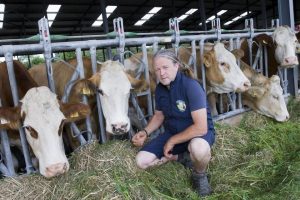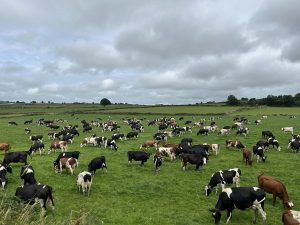
With falling beef prices and the continued dark cloud around Brexit, there is considerable interest among beef farmers in earning extra money by taking in dairy heifers or even bull/beef calves from dairy herds.
There are many beef farmers considering contract rearing as a reaction to poor cattle prices and the considerable media campaign to promote contract rearing in light of expansion of our dairy herds.
However, while there are good opportunities, there are potentially big problems ahead for many of these farmers if they do not properly research and financially plan where they are going.
In my experience over the past 20 years working with technically efficient beef farmers in Co Roscommon, the returns from improvements in their farm business have not been financially rewarded, and that’s why some are looking for better returns on their investment.
A beef farmer who can provide a contact rearing skill-set for dairy farmers and build a solid relationship over time can become an integral part of developing better dairy business.
The key part of developing trust in this relationship is that the contract rearer is working to the highest of standards and returning close to 95pc of heifers in-calf and on target weight within the 20 months.
BACKGROUND
Seven years ago I selected a group of top beef farmers in Roscommon to research opportunities in contract rearing.
We realised that there were potential business opportunities in contract rearing, but that we were not yet ready as a group to provide that service as there were gaps in our knowledge.
We visited Moorepark, some top dairy farmers and a number of existing contract rearers around the country.
We realised that the key to providing a good contract rearing business is to reduce the workload and pressure on dairy farmers in February/March.
The suckling farming background of this group ensured they were competent stock men, so breeding heifers was not a big challenge.
The long-term sustainability of contract rearing as we saw it involves providing the full package, taking the dairy calves at three weeks and returning them in-calf at 20 months.
The success of our group over the past number of years is largely based on developing that service, with a primary focus on strict protocols.
Protocols around animal health, constant monitoring of live weight gain and grassland management were developed.
The greatest risks to this system are around breakdown in animal health, which manifests itself in underachieving liveweight targets and ultimately higher mortality and infertility in the system.
A fundamental requirement of the group is to understand grassland management, make top-quality silage (over 70pc DMD) and be competent at heat detection to achieve 95pc of heifers in calf within a six-week period.
This is the basic criteria of the contract and why the contract rearer is paid for that service.
Dairy expansion is largely slowing down. The tide is turning, with concerns over nitrates and climate action targets applying a brake to further expansion.
This in turn will limit the potential for wide-scale contract rearing.
The reality of the situation in Ireland is that there is a shortage of top-quality calf rearers and too many beef farmers wanting to start contract rearing.
I spent a long day on a contract rearing stand last summer at the Dairy Open Day in Moorepark, and I reckon 90pc of people I spoke to were beef farmers wanting to be a contract rearer rather than dairy farmers looking for the service.
As with any business, high supply and lower demand will drive contract-rearing rates down and what is already a marginal business will become less viable.
Opportunities
There are, however, opportunities for top farm managers to work with top dairy farmers, but the real opportunities are in calf rearing pre-weaning with proper facilities and with calf-rearing skill-sets. This is labour-intensive service and requires a greater knowledge bank but in the long term is where dairy farmers see real merit.
Dairy farmers, particularly in the spring with high cow numbers and excessive workloads, will choose to pay a labour unit to someone to manage their calves and replacement enterprise off-farm.
The key requirement is for that individual is to hit close to national targets and provide healthy stock on their return, otherwise they can pay someone locally to do the same job at the minimum agricultural wage.
The benefit to having access to contract rearers’ land for reducing nitrates tips the balance in favour of opting to send a dairy heifer enterprise off-farm.
Many beef farmers would only consider taking on weaned calves or yearling heifers and they will ask if it will be a sustainable opportunity if too many farmers drive down rates at a time of falling milk prices.
Therefore, the real opportunities in the long term involve focusing on the calf-rearing skill-set with proper facilities.
Farmers need to take a planned approach for the next few years to have a sustainable contract rearing business.
Working in isolation can be very stressful for the contract rearer
One of the big considerations in contract rearing is how good or profitable is the dairy farmer you are working with.
Reducing replacement costs is the first part of the dairy business to be streamlined if milk prices fall or there are other financial pressures.
Therefore, if you are working with better financially performing dairy farms you will be exposed to lower risks.
Remember also that poorer-performing dairy farms could be struggling with animal health issues or infertility in the herd, and no contract rearer in one year can resolve these factors.
In my experience when targets are not met, the dairy farmer will be quick to blame the contract rearer and the blame game starts.
That leads me on to the issue of penalty clauses, which are often not discussed until the actual contract is being drawn up.
Security
From the dairy farmer’s point of view, they are paying considerable monies for the service and they require some security to cover the risk in terms of poor performance from the contract rearer.
This is a very important consideration for any beef farmer before embarking on contract rearing.
The biggest lesson we have learned over the last four years is that contract rearers working in isolation can find themselves in extremely stressful situations when targets are not being met.
The support of a discussion group or a group of like-minded people helps to alleviate and reassure the contract rearer when systems are breaking down. A support network of technical professionals is also vital for the contract rearer.
There are still opportunities for beef farmers to go contract rearing.
One option they have with their current land base is to replace their own stock with contract dairy stock – this reduces their overall net worth but can be justified with a long-term, sustainable contract-rearing business.
A word of caution here: a dairy farmer not committed to a longer-term arrangement can leave the contract rearer very exposed financially if they break the contract or do not renew it.
The other option is to have beef farmers contract rearing as a smaller add-on to their main business. This can leave both herds exposed to animal health issues but is less of a financial risk.
A long-term, planned approach to contract rearing rather than a knee-jerk reaction to poor beef prices is what is required.
